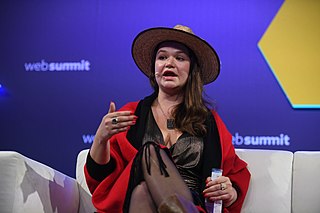A Quote by Paul Buchheit
Google is about information and computers and making things really fast. Facebook is about the sharing and connections. These missions give these companies direction and motivation.
Related Quotes
Whether it's Facebook or Google or the other companies, that basic principle that users should be able to see and control information about them that they themselves have revealed to the companies is not baked into how the companies work. But it's bigger than privacy. Privacy is about what you're willing to reveal about yourself.
I am the most concerned that we end up in a situation where your - everything is known about you and so therefore, not only Google, but Google, Facebook, Twitter - the whole set of companies - essentially knows all your weaknesses and therefore how to manipulate you in subtle ways in order to have you do things you might not otherwise do.
Governmental surveillance is not about the government collecting the information you're sharing publicly and willingly; it's about collecting the information you don't think you're sharing at all, such as the online searches you do on search engines... or private emails or text messages... or the location of your mobile phone at any time.
There's been a lot companies that have shown "zero to one" kind of growth in the computer, internet software age. Facebook and Google are zero to one companies. Apple's iPhone was the first smartphone that really works, and of course, then you scale it horizontally, but the vertical component was really critical. Space X would also be one.
While we bemoan the decline of literacy, computers discount words in favor of pictures and pictures in favor of video. While we fret about the decreasing cogency of public debate, computers dismiss linear argument and promote fast, shallow romps across the information landscape. While we worry about basic skills, we allow into the classroom software that will do a student's arithmetic or correct his spelling.
There is more interest in what is occurring in technology companies that impact news. Such companies don't have the same sense of transparency about what they do. They have a tradition of secrecy about products, mores and decision-making that goes along with Silicon Valley and intellectual property and technology. You cannot step onto the grounds of Google without signing a Non-Disclosure Agreement. That industrial secrecy mentality exists along with a theoretical sensibility about transparency on the Web, which is different than transparency inside companies that profit from the Web.



































